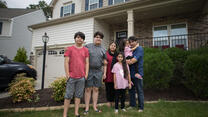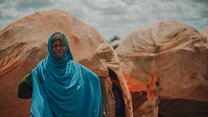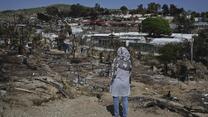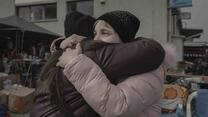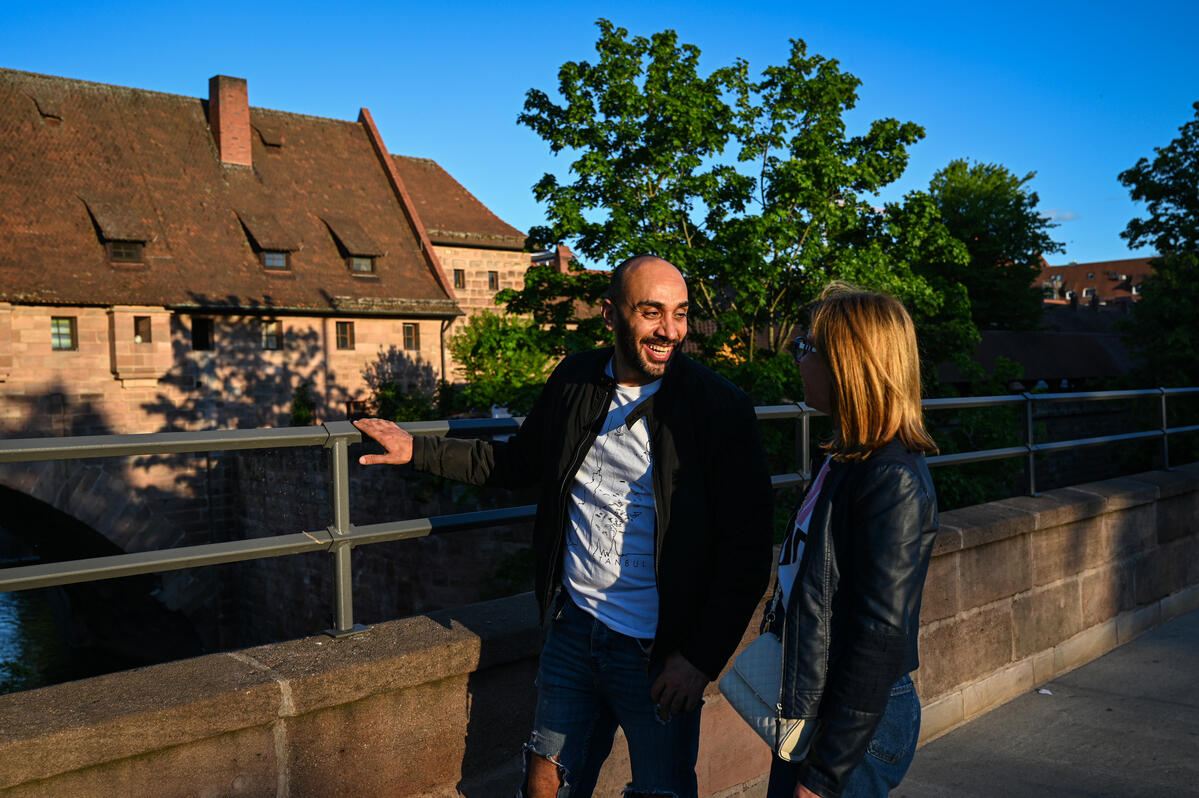
Refugee resettlement is an internationally-agreed framework, which aims to provide a pathway to safety and a durable solution for refugees.
Countries, such as EU member states, Canada, the UK, or the US, voluntarily agree to welcome recognised refugees who have already fled their countries of origin, are particularly vulnerable, and cannot receive the support they need in their host countries.
In September 2023, EU countries will be announcing their pledges for how many refugees they plan to welcome through this route in 2024-2025.
The IRC is calling on EU countries to make ambitious pledges to resettle at least 44,000 refugees next year, and to ensure that resettlement programmes continue to grow.
76% of refugees worldwide are hosted by low-income and middle-income nations, who often face domestic hardships that make it harder to offer protection. Refugee resettlement is a tried and tested way to support displaced people and the countries that welcome them.
It is also one of the few safe and orderly ways for refugees to come to Europe. It therefore remains a large focus for the IRC in the EU against rising humanitarian crises around the world.
2 million refugees are estimated to be in need of resettlement today. However current pledges fall short of this need. In 2022, EU states resettled only 16,695 refugees - only 1.1% of global needs.
The IRC is committed to working with EU member states to expand their resettlement programmes and ensure existing pledges are honoured. The IRC is one of the largest non-profit resettlement agencies in the US, having resettled over 400,000 people in the past 4 decades, and has provided capacity-building support for resettlement and integration programming to 18 countries, including in Europe. As a result, we know first-hand the transformative and life-changing impact that resettlement can have, for refugees and receiving communities alike.
Read on to understand more about resettlement and what the EU can do to support refugees through this durable solution and crucial pathway...
What is refugee resettlement?
Refugee resettlement provides a durable solution for refugees who are outside of the EU, in particularly vulnerable situations, and who do not have adequate support in their host countries.
Today 76% of the world’s refugees live in low and middle-income countries, and 70% live in countries neighbouring those they had to flee. Through resettlement, some of the most vulnerable refugees in these regions are transferred to safe countries elsewhere - such as EU member states, Canada, the UK or the US - where they are granted a pathway to permanent residence.
Resettlement countries choose to commit to accepting a certain number of refugees each year. The UN refugee agency, UNHCR, refers refugees to states, who then choose who they admit, according to their own national criteria.
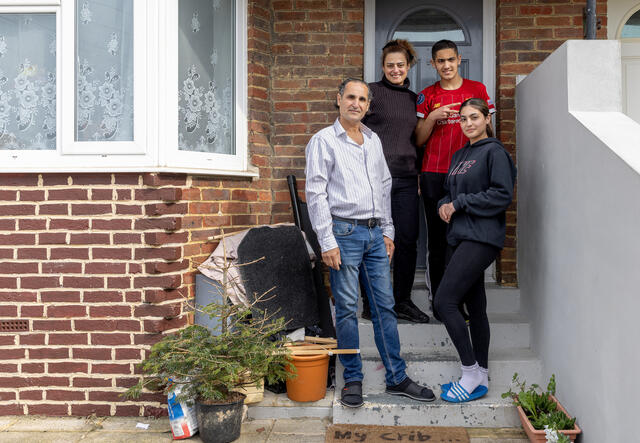
Resettlement is also currently one of the few safe and regular legal ways that refugees are able to reach safety in EU countries without further risking their lives on perilous journeys in search of protection.
Resettlement is separate and additional to asylum, and cannot replace a functioning asylum system. Whereas resettled refugees have already had their international protection needs recognised, people who reach Europe’s borders by their own means in search of safety must be guaranteed access to fair and full asylum procedures, regardless of country of origin.
Why is resettlement important?
Even long after their departure, many displaced people still cannot return to their country of origin as they continue to face grave dangers, such as violence or persecution. This may make return impossible.
In the regions they have fled to - especially those that host large numbers of refugees - people and families are often forced to live in camps or substandard shelters for long periods of time. These states are demonstrating immense generosity, but they often do not have the wealth or resources to cater for people’s complex needs, guarantee successful integration, or provide lasting protection.
In some cases, these countries cannot uphold the fundamental rights of refugees - and particularly of the most vulnerable, at whom resettlement is aimed. A large majority of people in need of resettlement are women and girls, survivors of violence and/or torture, and people with specific legal and/or physical protection needs.
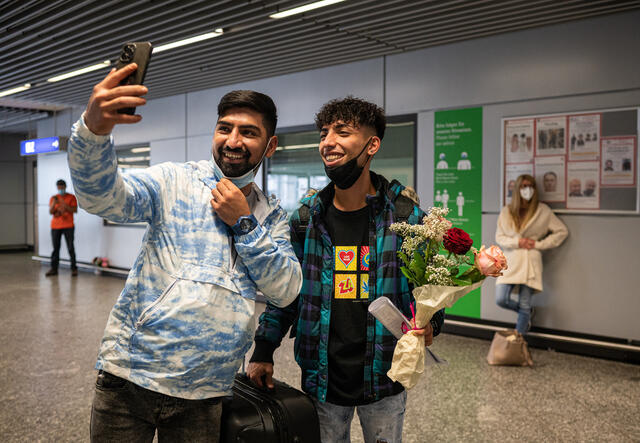
For refugees, resettlement can be a lifeline: it gives them a chance to find a stable new home, take back control over their own life and become self-reliant, and integrate into a society that recognises their rights.
For states, it is an important tool to show international solidarity with other countries and people in need of international protection, to share responsibility for refugees in the international community, and alleviate problems impacting the first country of asylum, improving the situation for those remaining there. This way, resettlement can encourage and enable host countries to keep offering protection to other refugees in need.
For receiving communities, resettlement can be greatly beneficial as it allows for the effective reception and integration of refugees. If adequately supported, refugees often thrive and contribute immensely to their communities, building their families and careers, and gaining citizenship.
What are current resettlement needs?
The most recent figures from UNHCR show that the number of people displaced from their homes has soared to a record 108 million in 2023. In this context, the need for resettlement is more pressing than ever.
An estimated 2 million particularly vulnerable refugees will be in need of resettlement in 2023, a figure that has more than doubled since 2010, and a drastic increase from 1.47 million year-on-year from 2022.
For the seventh year in a row, Syrian refugees have the highest global resettlement needs, followed by refugees from Afghanistan, the Democratic Republic of the Congo, South Sudan, and Myanmar. Meanwhile, the situation in many refugee-hosting countries such as Türkiye, Lebanon and Libya continues to worsen.
For example, in Lebanon, nine out of ten refugee families live in extreme poverty, and 90% of its 1.5 million Syrian refugees need humanitarian aid. In Afghanistan, over 700,000 people were forced to flee their homes in 2021, adding to the 5.5 million people already displaced in recent years - with over 90% of registered refugees hosted in Iran and Pakistan and an important gap in resettlement from the region. Türkiye continues to host the largest number of refugees worldwide, including 3.6 million Syrian refugees, and needs along the Central Mediterranean Route, including Libya, are also increasing. The COVID-19 pandemic has also had a profound impact on these countries‘ capacity to ensure refugees‘ protection.
Despite these sky-high resettlement needs, the number of people benefitting from essential resettlement schemes slumped to a record low in 2020, with fewer than 23,000 people resettled globally that year. Now, despite most COVID-related travel restrictions ending in 2021, resettlement has yet to return to its earlier pace and scale. In 2022, 114,300 refugees were resettled globally, but the gap between resettlement needs and actual efforts continues to grow.
What must the EU do to help?
EU member states’ resettlement efforts have taken a significant hit in recent years.
According to UNHCR, only 8,314 were resettled in the EU in 2020, less than half the previous year (around 20,000 refugees in 2019). In 2022, the EU’s member states resettled just 16,695 refugees - representing only 1.1% of global needs.
With European states’ attention now focused on receiving people fleeing the conflict in Ukraine, already reduced resettlement efforts now risk taking a further hit. Instead, it is imperative that programmes are strengthened and scaled up in a future-proof way. The positive momentum and solidarity expressed in welcoming people fleeing Ukraine must lead to strengthened refugee protection and dignified protection for all those forced to flee, regardless of their country of origin.
As one of the world’s wealthiest regions, the EU and its member states can and must do better. In response to rising needs worldwide, EU states must urgently reaffirm their commitment to refugee resettlement and prevent programmes from shrinking further.
This is a pivotal moment for states to invest into durable, multi-annual, resilient, and ambitious resettlement programmes, mobilising the unprecedented solidarity towards refugees from Ukraine and elsewhere.
The IRC is calling on the EU and its member states to take bold steps towards:
- Meeting their current commitment to resettle at least 15,897 refugees in 2023.
- Commiting to resettling at least 44,000 refugees in 2024 - an achievable average of just over 1,500 people per member state - with a view to further scaling up to a number more proportionate to Europe’s wealth and size.
- Adopting the Union Resettlement Framework (URF) to establish a more structured, predictable and longstanding EU policy on resettlement.
What can I do to help?
Learn more about the need for increased resettlement and what EU member states can do to uphold this vital pathway and durable solution for refugees.
